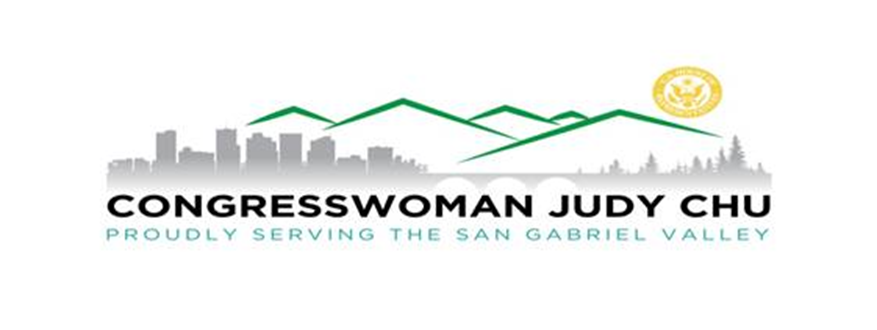We are grateful to Representative Judy Chu and Senator Cory Booker for introducing the latest iteration of the DIPLOMA act yesterday. IEL’s Policy team was an integral part of updating the bill, and worked with Hill staff to get it reintroduced.
Read the full press release from Congresswoman Chu’s office below:
FOR IMMEDIATE RELEASE
December 7, 2022
PRESS CONTACT
Rep. Chu, Sen. Booker Introduce DIPLOMA Act to Support Community Schools
WASHINGTON, D.C. – U.S. Representative Judy Chu (D-CA) and U.S. Senator Cory Booker (D-NJ) today introduced the Developing Innovative Partnerships and Learning Opportunities that Motivate Achievement (DIPLOMA) Act, which would support schools in becoming community centers that offer a full suite of comprehensive services to meet students’ holistic needs beyond the classroom, such as their housing, nutrition, safety, and physical and mental health care needs.
In the last four decades, the U.S. has plunged from first in the world in high school and college graduation rates to 21st and 14th respectively. A driving force behind this decline is increasing drop-out rates which are caused in part by students not always having their needs met by their school and community. Studies show that when these needs are met, students are more likely to succeed. The DIPLOMA ACT would provide federal support for partnerships between public schools and community organizations designed to address those holistic needs and improve the lives of students and their families.
“As a former teacher, I know that a good education is a proven pathway for future success,” said Rep. Chu. “But for too many students, difficulties outside the classroom—such as hunger, problems at home, mental health issues, or other obstacles—hold them back. Helping students to be as successful as possible means ensuring they have the services and support they need. Local universities, community non-profits, and more have so much to offer students, but often the resources are not there to bring them together. That’s why I’m proud to be reintroducing the DIPLOMA Act with Senator Booker to support community schools—schools that partner with local organizations to become full-service community centers for students and families. This bill encourages these partnerships and provides the grant funding necessary to make them successful.”
“In order for our children to succeed academically, we need to ensure they are in environments where they are fully supported by their communities,” said Senator Booker. “This legislation will enable schools to provide vital support services, such as nutrition programs, health care, and counseling to students. By turning schools into full-service community hubs, we can empower students and better prepare them for academic success and life after graduation.”
“We are thrilled that Representative Chu and Senator Booker are reintroducing this important bill,” said Eddie Koen, President of the Institute for Educational Leadership (IEL). “The DIPLOMA Act will provide states with the federal funding needed to help build strong state coalitions that are organized to implement and scale the Community Schools we know they want, and strengthen school-community partnerships around comprehensive, evidence-based goals for continuous improvement with respect to children and youth, particularly under-resourced children and youth. Since these funds go directly towards the desired outcomes of the Community School strategy, we are confident that this legislation will bring about more equitable practices and systems in more communities across the country. Another important update to this bill is the allowing states to use this funding for teacher recruitment and retention, which is key in an environment where Districts are reporting an all-time high rate of teacher turnover. At IEL, we know that in order to build resiliency in our education system, we need innovation – innovation born of research, strength-building, and robust public policy that is informed by the needs and interests of those most affected by policy decisions – youth, families, and communities. We believe this bill provides just that and are excited to see the continued expansion of Community Schools through this state-level support.”
The DIPLOMA Act would provide federal grants to states to support community schools and develop a comprehensive child and youth strategy. States would award subgrants to local consortia, in which a public school works with at least one community partner. Community partners can be any one of a number of local institutions, such as local governments, institutions of higher education, child and youth-serving organizations, organizations representing parents, nonprofits, businesses, or foundations.
A Community School Consortium receiving a grant could use those funds to:
- Support early childhood education, reading programs, child care, home visiting, and parental education
- Provide academic support services including tutoring, afterschool programs, and summer learning
- Reduce chronic absenteeism
- Develop programs for students and parents to learn together, including in STEM, arts, music, and a second language
- Offer multiple routes to a high school diploma including dual enrollment, early college high schools, and dropout recovery and prevention
- Support mentoring and youth development
- Provide services for students with disabilities
- Offer health services including primary care, speech and hearing, nutrition, and mental health
- Support leadership development and civic learning, job training, career counseling, and college preparation programs
- Support the recruitment and retention of teachers and school staff
- Promote parent and adult education
The DIPLOMA Act is endorsed by the Institute for Educational Leadership (IEL), the Coalition for Community Schools, the National Education Association (NEA), and the American Federation of Teachers (AFT).
###
